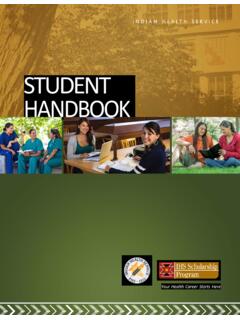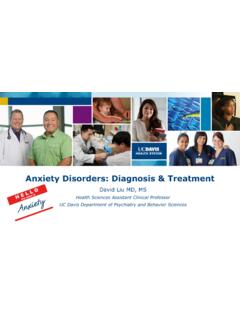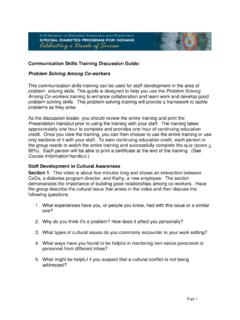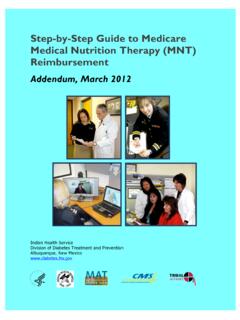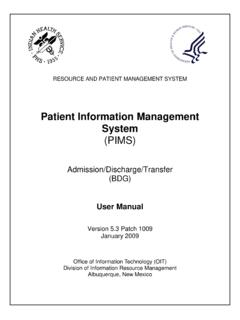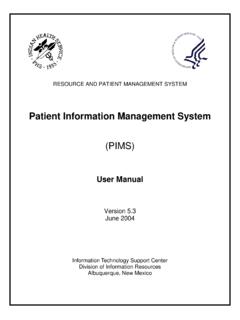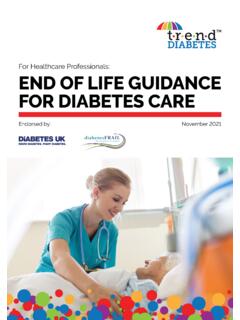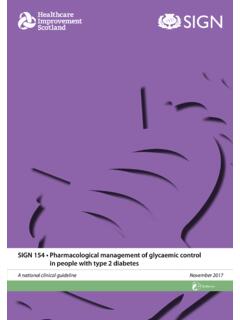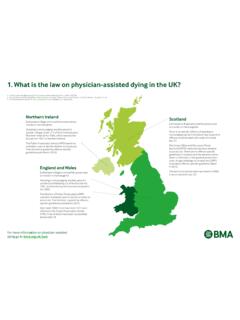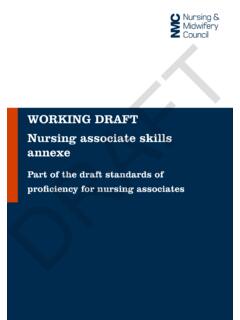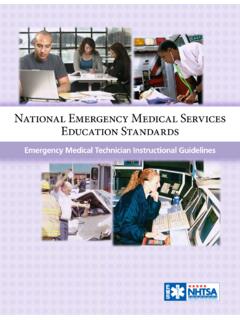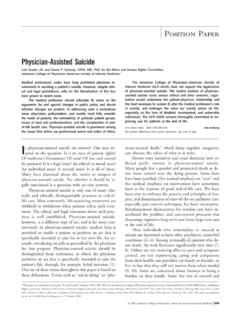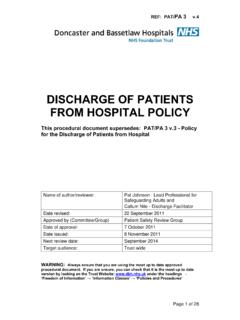Transcription of Grief Reactions: Assessment and ... - Indian Health Service
1 Grief Counseling Grief Reactions: Assessment and Differential Diagnosis Avi Kriechman, UNM Department of Psychiatry and Behavioral Sciences Division of Community Behavioral Health Objectives Screen for and assess normal vs. complicated Grief reactions. Utilize guidelines for the differential diagnosis of Grief reactions. Develop a practical approach to determine if Grief therapy is indicated or not. Bereavement Grief Mourning Bereavement: the experience of losing a loved one to death. The time spent in bereavement depends on how attached the person was to the person who died, and how much time was spent anticipating the loss Grief : the normal and natural psychological, emotional, physiological, social and cultural reactions to losing a loved one (or other kinds of loss and change).
2 Mourning: showing Grief in public, affected by personal and family beliefs, religious practices, and cultural customs and rituals. Types of Grief Normal: the normal and natural psychological, emotional, physiological, social and cultural reactions to losing a loved one (or other kinds of loss & change). Anticipatory: may occur when a death is expected but before it happens; may help bereaved but not help the dying person; does not always occur Disenfranchised: Grief not acknowledged by society: loss of stigmatized/hidden/discounted relationship, pregnancy (abortion, miscarriage), pet, job, home, etc.
3 Complicated/Prolonged [briefly named Traumatic Grief , but renamed because of confusion with Traumatic Bereavement - loss due to violent causes- and PTSD]. Types of Loss Death of a loved one Loss of a loved one through relationship conflict or breakup, serious illness of a loved one, moving to a new home, etc. Personal loss of one's abilities, capacities, Health & well-being through aging, illness, accident or trauma Loss of financial & job security, social status Loss of idealized self Disenfranchised losses of stigmatized/hidden/discounted relationship, pregnancy (abortion, miscarriage), pet, job, home, etc.
4 Ambiguous Loss Physically absent but psychologically present because status of being dead or alive is unavailable (lost soldiers, kidnapped/missing children, etc.). Psychologically absent but physically present (dementia, severe mental illness, substance abuse disorders and other illnesses that rob the mind). Without the markers of a clear-cut loss (death certificate, mourning rituals, opportunity to honor and dispose remains), ambiguous loss defies resolution. Not knowing what to do, the loss is denied and relationships are put on hold.
5 The Myth of Kubler-Ross' Stage Theory of Grief Kubler-Ross: studied terminally ill grieving own death Denial-Dissociation-Isolation Anger Bargaining Depression . Acceptance No empirical support for Grief as (1) divisible into distinct stages, (2) linear, or (3). time-bound Does not account for cultural & religious contexts Acceptance most commonly reported response (even soon after death) most bereaved are resilient in face of loss A mistaken belief in Grief stages harmful to bereaved led to believe they are not coping normally.
6 The Myth of Worden's Grief Work in Normal Grief Worden's 4 Tasks of Grief Work Accept reality of loss Experience the pain of Grief Adjust to an environment in which the deceased is missing Emotionally relocate the deceased and move on with life If Grief is unique, how can there by universal tasks? No empirical support for Grief work perspective for normal Grief The model encourages providers to identify task(s) of mourning that are not completed and help bereaved resolve each task. Studies have found this practice to be harmful for many of the bereaved.
7 The Myth of Closure Grief research indicates that everyone's experience with Grief is distinct and there's no specific timeline for grieving. Many who share their experience with Grief describe the importance of meaning making and continuing bonds . The concept of continuing bonds explains that people who grieve often search for ways to stay connected with their deceased loved ones. The Problem of Closure Closure talk frames Grief as bad and something that needs to end. Closure is often seen as the normal end stage of Grief , with normal grieving translated as finding closure.
8 Expecting people to find closure within a particular time frame or after specific rituals does not help the understanding of Grief and can contribute to pathologizing and medicalizing normal Grief . Normal Grief Physical expressions of Grief often include crying and sighing, headaches, loss of appetite, difficulty sleeping, weakness, fatigue, feelings of heaviness, aches, pains, and other stress-related ailments. Emotional expressions of Grief may include feelings of sadness & yearning, worry, anxiety, frustration, anger, or guilt.
9 Social expressions of Grief may include feeling detached or disconnected from others & isolating from social contact Spiritual expressions of Grief may include questioning the reason for your loss, the purpose of pain and suffering, the purpose of life, and the meaning of death. Normal Grief Reaction to loss is influenced by Relationship with the lost person Coping style Personality Life experiences. Expression of Grief is influenced in part by the cultural, religious, and social rules of the community Grief Experiences Are Embedded Within a Context Grief is a unique experience that occurs within a historical, social, cultural, and political context There is a complex interplay between contextual variables that mediate and moderate an individual's Grief experience (impact of family & friends, professional helpers, social norms, legal and medical systems, etc.)
10 Grief Experiences Are Embedded Within a Context Understandings of Grief may affect the amount and type of support one receives from family and friends The status of a particular bereavement might impact one's access to professional help Cognitive appraisal may affect how one perceives the support he or she receives. (Breen & O'Connor, 2007). Respecting the Mourner's Culture Death, Grief , and mourning are normal life events. All cultures have practices that best meet their needs for dealing with death. The ways in which people of all cultures feel Grief personally are similar even though different cultures have different mourning ceremonies and traditions to express Grief .
